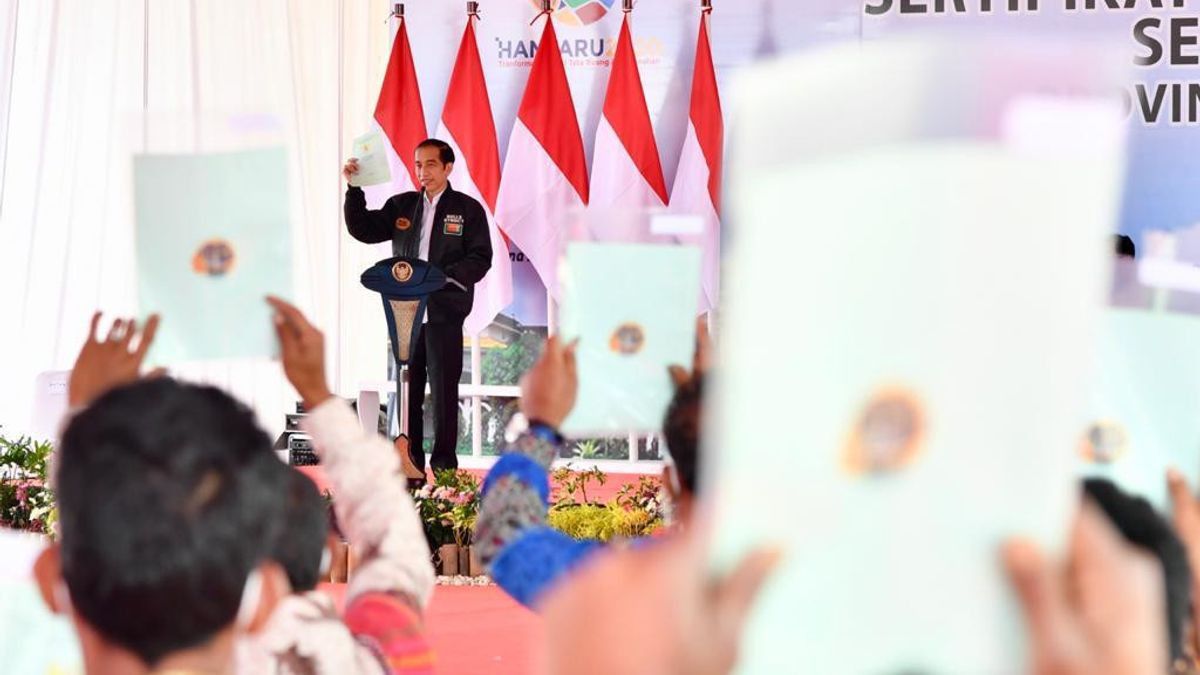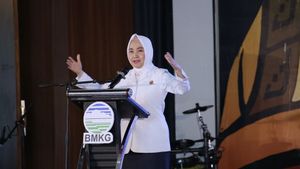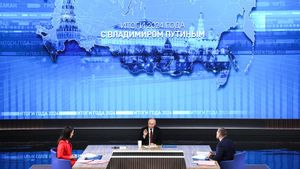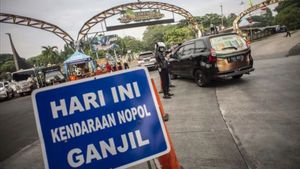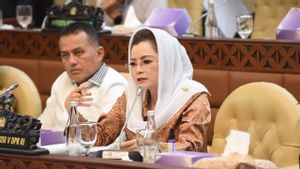JAKARTA - The policy of electronic land certificates became a topic of discussion after reports emerged that the government would withdraw the original certificates and replace them with digital versions on February 2. Various criticisms also flowed. One of them is about the corruption prevention program. Policy makers feel they need to learn from past cases such as the Electronic KTP scandal.
The issue of electronic land certificates began with the preparation of the certification site on January 30. The issue became even more prominent when the government suddenly withdrew the original certificate in early February.
This immediately sparked a public reaction. According to the analysis of social media expert from Drone Emprit Ismail Fahmi via his Twitter account, netizen sentiment towards this issue is very negative.
Drone Emprit data records that of around 11,504 electronic certificate keywords, 65 percent are in italics. Only 25 percent of accounts contributed positive sentiment and the rest were neutral.
Furthermore, Ismail explained that the perception that first emerged regarding this issue was dominated by fear. "Withdrawing the original certificate, replacing it with digital, it is terrible for the public," wrote Ismail.
According to Ismail's analysis, amid the government's opinion that it is not yet capable of safeguarding public data, but instead makes a policy of withdrawing land certificates and replacing them with electronic certificates. Moreover, not a few also think that bribery is still rife in the field.
Learn from the E-KTP caseEmprit Drone Analysis ELECTRONIC LAND CERTIFICATE Hopefully this analysis can help @atr_bpn a little in listening to the public response to the plan above. The goal is to avoid land disputes, instead of getting caught by the public will open up opportunities for more widespread disputes. >> pic.twitter.com/Hr4qzhEzKW
- Ismail Fahmi (@ismailfahmi) February 5, 2021
One of those who highlighted the matter of preventing corruption was the anti-corruption activist Febri Diansyah. Through his personal Twitter account @febridiansyah, he said that turning paper into electronics is good. However, policymakers also need to learn from the Electronic KTP case in terms of preventing corruption.
"Learning from the case of the Electronic KTP case, both from the aspect of corruption, parties who can access data, equipment readiness, capacity & employee integrity to validity are much more important," wrote Febri.
To prevent corruption, especially in policies with fat budgets, this former spokesman for the Corruption Eradication Commission (KPK) emphasized the importance of assessing the risk of corruption. "So that the prevention of corruption is not stuck in slogans and ceremonies alone."
In his tweet, Febri also reminded the KPK to continue investigating the Electronic KTP corruption case. "There are still many names of politicians and private parties that need to be read and read again. This case perfectly involves the conspiracy of politicians, business people and the bureaucracy."
Corruption risk assessmentTurning paper into electronics is great. But learn from the case of the Electronic KTP case, from the aspects of corruption, parties who can access data, equipment readiness, capacity and employee integrity to validity is much more important. How about the plan for electronic land certificates?
- Febri Diansyah (@febridiansyah) February 4, 2021
Furthermore, Febri explained to VOI the assessment of the risk of corruption. According to him, this can be started from identifying areas and situations that are prone to corruption.
"This can be learned from previous cases. Including relations with external parties," said Febri.
Hopefully, the concept of corruption risk assessment is indeed a concern for all of us. Not only in one particular project, but also used as general policy in government.
"Especially for projects with large budget values and involving the interests of the wider community," said Febri.
Responding to the rolling issue, the Minister of Agrarian Affairs and Spatial Planning / Head of the National Land Agency (ATR / BPN) Sofyan Djalil emphasized that the Ministry of ATR / BPN will not withdraw physical land certificates that are still owned by the community. According to Sofyan, many people have a misunderstanding regarding this electronic certificate replacement.
"BPN will never withdraw the certificate. If someone claims that BPN wants to withdraw the certificate, don't be served. The existing certificate remains valid until later it is transferred to electronic media," Sofyan said in a virtual webinar held by the ATR / BPN Ministry, Thursday, February 4th.
The English, Chinese, Japanese, Arabic, and French versions are automatically generated by the AI. So there may still be inaccuracies in translating, please always see Indonesian as our main language. (system supported by DigitalSiber.id)
